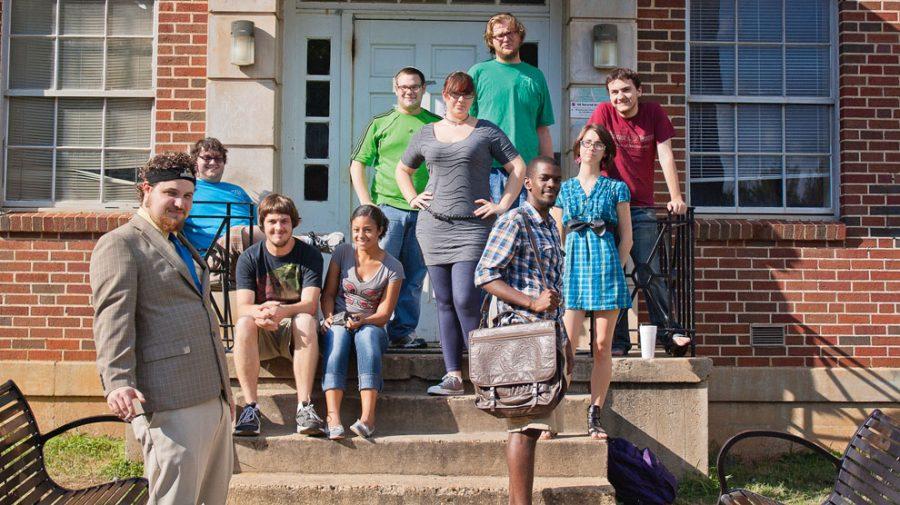Fifty years after its inception as a project of Dean of Men John Blackburn, the Mallet Assembly remains one of UA’s most un-traditional organizations. From Palmer Hall—the Assembly’s dormitory—Malleteers have seen mixed reactions from across campus to the group’s unique attitudes and opinions.
In its fiftieth year, Mallet still elects its own RAs and has its own written constitution, features that make the Assembly a truly self-governing student organization. Responsibility on the part of the individual, according to Mallet Minister of Information Marina Roberts, is the group’s general philosophy.
“We look deeper into you as a person and try to figure out who you are beyond whatever weird hobbies you may have, which is why I think so many students come here and feel an acceptance they never felt before,” Roberts said. “My advice to the students who have those misconceptions about Mallet would be to come around sometime and talk with us.”
Those misconceptions, she said, are misguided. Roberts, a sophomore majoring in anthropology, believes typical students view Mallet as kids who play Dungeons and Dragons—sometimes, even, as second-class citizens on campus.
While Mallet Assembly has faced harassment through the years, one example comes from as recently as Sept. 13, when the Mallet Assembly sign was stolen from the building by a group of young men. Mallet’s president, Max Hill, attempted to stop the theft from happening, but was struck by a vehicle before he could catch the culprits.
“I would just like it if the general attitude of treating Mallet like an organization of second-class citizens stopped,” Roberts said.
Stopping harassment, though, can be difficult for a group with Mallet’s attitude toward campus issues—an attitude, according to Mallet historian Ethan Graham, that always challenges the status quo.
“As both individuals and an organization as a whole, Malleteers are always changing something,” Graham said. “Whether we’re changing ourselves through personal growth, changing the policies of the University through organized effort, or even changing the social landscape in the world all around us, we’re always seeking to forego the status quo—to make a difference of some kind. To put it simply, we’re always striving to break the mold.”
The Mallet Assembly bills itself as a group that allows an individual to unapologetically be who he or she is. In Palmer Hall, the Assembly has a common room, a basement full of arcade games, a computer lab, movie theater, piano and area where they conduct meetings and admissions interviews.
According to admissions chairman Spencer Carter, Mallet currently has 100 active student members and hundreds of alumni, some of whom were on campus as far back as the 1960s, that still communicate with current students.
Sujata Mulekar, a junior majoring in biology, said she was attracted to Mallet because of its camaraderie.
“It’s like a family,” she said. “Your family accepts you for who you are. I’ll keep in touch with some of the friends I met in Mallet for a long time.”
Harrison Hall, a freshman majoring in civil engineering, said, “In three days, I learned everyone’s name. Mallet pushed me forward to get involved in a lot of things and encouraged me to go out and meet people.”
Students interested in joining the Mallet Assembly can find information and the application online at www.mallet-assembly.org.
In the Sept. 22 edition of The Crimson White, the article “Mallet celebrates 50th anniversary” incorrectly identified Mallet’s historian, Ethan Graham, as Ethan Thomas. The CW regrets the error and is happy to set the record straight.









